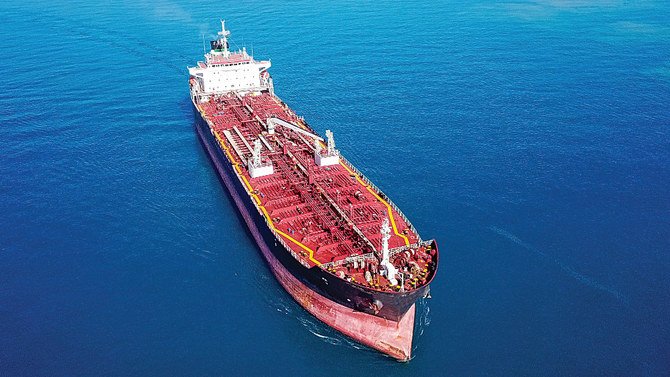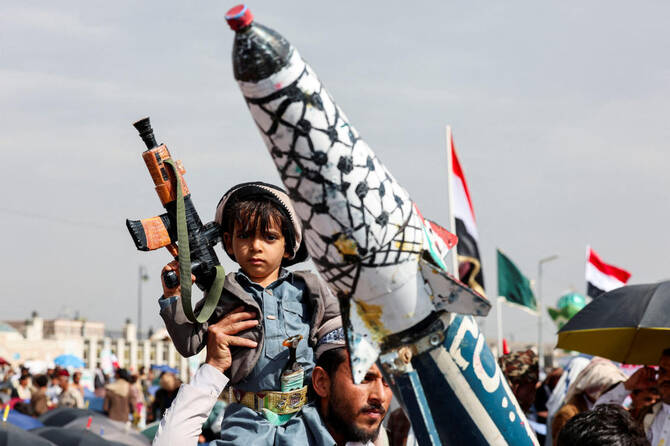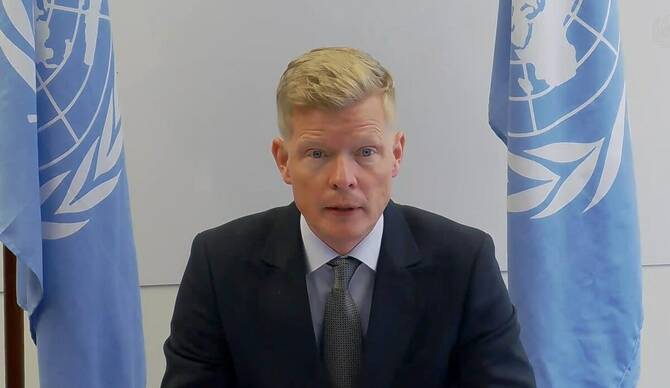JEDDAH: Houthi militias in Yemen finally backed down on Sunday over access to a stricken oil storage vessel to prevent it from leaking more than a million barrels of crude into the Red Sea.
Engineers from a UN inspection team are now expected to board the FSO Safer in the next few days to assess the vessel’s condition and carry out emergency repairs.
The 45-year-old Safer has been moored 7 km off the coast of Yemen since 1988. It is stationary, with no engine or means of propulsion. The vessel fell into the hands of the Iran-backed Houthis in March 2015, when they took control of the coast around the port city of Hodeidah.
The militants have refused for more than 5 years to allow international engineers to board the Safer to carry out essential repairs, and as the vessel’s condition deteriorates there are fears that the 1.4 million barrels of oil it contains will start to seep out. A breach would have disastrous results for Red Sea marine life and tens of thousands of people who depend on fishing for their livelihood.
Apart from corrosion, essential work on reducing explosive gases in the storage tanks has been neglected for years. The Yemen government has warned the Safer could explode and cause “the largest environmental disaster, regionally and globally.”
The latest problem came in May with a leak in a cooling pipe. “The pipe burst, sending water into the engine room and creating a really dangerous situation,” said Ian Ralby, chief executive of the maritime consultancy IR Consilium.
If the vessel ruptures, “you’re going to have two catastrophes,” said Lise Grande, the UN’s humanitarian coordinator for Yemen.
“There’s going to be an environmental catastrophe that’s bigger than almost any other similar kind … and it’s going to be a humanitarian catastrophe because that oil will make the port of Hodeidah unusable.”
Critics say the Houthis have been using the Safer to blackmail Yemen’s legitimate government into offering concessions in peace talks brokered by the UN and to enable them to sell the vessel’s oil. Yemeni Prime Minister Maeen Abdulmalik Saeed wants the proceeds from selling the oil to be spent on health care and humanitarian aid.
Crude stored in the Safer’s tanks is worth about $40 million, half what it was before prices crashed, and experts say it may be of poor quality and worthless.






















